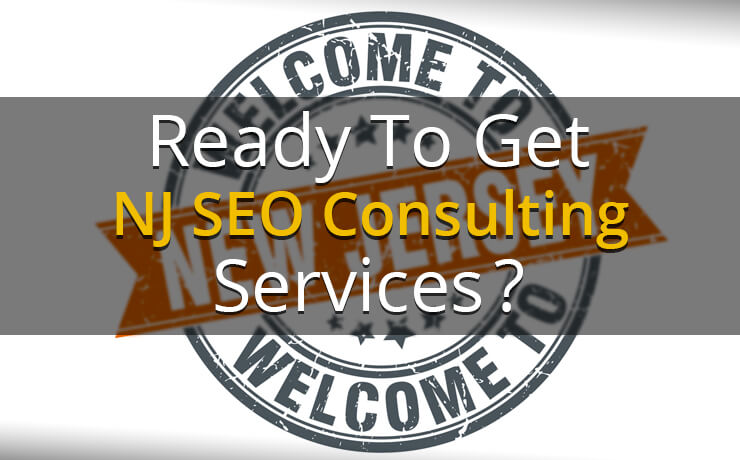Keyword Research for SEO: Maximizing Your Ranking Potential

Luna Silva
Senior Project Manager, Training Lead

If you’re familiar with the world of SEO, you’ve likely heard the term “keyword targeting” thrown around quite a bit. But what does it really mean and how can you use it to boost your website’s ranking potential on the SERP? In this blog post, we’ll take a deep dive into the world of keyword research for SEO and how to best use it to boost your visibility in the digital space.
What is keyword targeting?
Keyword targeting is the process of selecting and using specific keywords and phrases that users are searching for in order to optimize your website’s content for search engines. By targeting relevant and popular keywords, you increase the likelihood of your website ranking higher in search engine results pages (SERPs) for those particular searches.
Why is keyword targeting important for SEO?
Keyword targeting is important because it helps search engines understand what your website is about and what kind of content it offers. When a user types a query into a search engine, the engine scans its index for relevant pages and ranks them based on a variety of factors, including keyword relevance and authority. By optimizing your website’s content with the right keywords, you’re telling search engines that your content is relevant for those specific topics.
Elements of keyword research
Before we dive into how to research keywords for your SEO strategy, let’s take a look at the different elements that make up effective keyword targeting:
- Relevance & Intent – The keywords you target should be directly relevant to your business and the content on your website. They should also align with the intent behind a user’s search query. For example, if someone searches for “Pizza restaurants near me,” they are probably looking for restaurants in their area that serve pizza. Targeting keywords like “best pizza recipes”, which include the keyword “pizza” would not be relevant or effective for this particular search because it doesn’t match the user’s intent.
- Authority – In addition to relevance, search engines also consider the authority and trustworthiness of a website when ranking search results. This means that websites with a strong track record of producing high-quality content and receiving backlinks from other sites with a high authority will have an advantage when it comes to ranking for targeted keywords.
- Search Volume – Search volume refers to the number of searches a particular keyword receives. Targeting highly competitive keywords with high search volume may be difficult, but it can pay off in the long run if you’re able to rank highly for those terms. On the other hand, targeting low-volume keywords can be less competitive but may not yield as much traffic to your site. Therefore, there is a balance to be found between search volume and keyword difficulty when it comes to researching keywords to target.
How to research keywords for your SEO strategy
Now that we’ve covered the basics of keyword targeting, let’s dive into the process of researching keywords for your SEO strategy:
Step 1: Make a list of important, relevant topics based on what you know about your business.
Start by brainstorming a list of broad topics that relate to your business and the kind of content you produce. For example, if you run a fitness blog, your topics might include “nutrition,” “exercise,” and “workouts.” These topics will serve as the foundation for your keyword research.
Step 2: Fill in those topic buckets with keywords.
Next, start filling in each topic bucket with specific keywords and phrases that relate to that topic. Use your own knowledge of your business, as well as keyword research tools, to come up with a comprehensive list of keywords. For example, under the “nutrition” topic, you might include keywords like “healthy eating,” “meal prep,” and “protein sources.”
Step 3: Understand how intent affects keyword research and analyze accordingly.
Remember that it’s important to consider the intent behind a user’s search when targeting keywords. This means understanding what kind of information a user is looking for when they type in a particular keyword or phrase. Tools like Google’s Keyword Planner and Ahrefs are great resources to analyze the search volume and intent behind certain keywords.
Step 4: Research related search terms.
In addition to the keywords you’ve identified for each topic, it’s important to research related search terms as well. These may include synonyms, variations, and long-tail keywords. Tools like Google’s “Searches related to” and “People also ask” sections can provide helpful suggestions for related search terms.
Step 5: Use keyword research tools to your advantage.
There are many keyword research tools available to help streamline the process of identifying relevant and effective keywords. Some popular resources include Google Keyword Planner, Ahrefs, SEMrush, and Moz Keyword Explorer. These tools can provide insights into search volume, competition, and related keywords to help you make informed decisions about which keywords to target.
Managing Keyword Targeting
Once you’ve identified your target keywords, it’s important to manage them effectively to maximize your ranking potential. This includes prioritizing your targets, optimizing on-page content for targeted keywords, and tracking keyword performance.
Prioritizing your targets – Not all keywords are created equal, and it’s important to prioritize your targets based on factors like search volume, relevance, and competition. Focus on targeting high-priority keywords that align with your business goals and have the potential to drive the most traffic to your site.
Optimizing on-page content for targeted keywords – Once you’ve identified your target keywords, it’s important to optimize your on-page content to include those keywords in strategic places like page titles, headers, and meta descriptions. However, it’s important to avoid “keyword stuffing,” or overusing keywords in a way that makes your content sound unnatural or spammy.
Tracking keyword performance – Finally, it’s important to regularly track the performance of your targeted keywords to see how they’re impacting your search engine rankings and traffic. Use tools like Google Analytics and Google Search Console to monitor your keyword rankings and adjust your strategy as needed.
Advanced Keyword Targeting
In addition to the basics of keyword targeting, there are also some more advanced strategies you can use to maximize your ranking potential:
- Long-tail keyword targeting – Long-tail keywords are highly specific search phrases that may have lower search volume but also less competition. Targeting long-tail keywords can be a highly effective strategy for driving targeted traffic to your site.
- Geo-targeting – If your business has a local focus, geo-targeting can be a highly effective strategy for reaching local customers. This involves targeting keywords that include location-specific terms like city names or zip codes.
- Voice search optimization – With the rise of voice assistants like Siri and Alexa, optimizing your content for voice search is becoming increasingly important. This involves targeting long-tail keywords that match the way people naturally speak and incorporating conversational language into your content.
Common Mistakes in Keyword Targeting
While effective keyword targeting can have a significant impact on your SEO strategy, there are also some common mistakes to avoid:
- Keyword stuffing – As mentioned earlier, overusing keywords in a way that sounds unnatural or spammy can actually hurt your rankings. Instead, focus on using keywords strategically in a way that enhances the quality and relevance of your content.
- Targeting irrelevant or low-volume keywords – While it can be tempting to target keywords with low competition and high search volume, it’s important to ensure that those keywords are actually relevant to your business and the content you produce.
- Ignoring user intent – Finally, it’s important to always consider the intent behind a user’s search when targeting keywords. Failing to do so can result in targeting keywords that don’t actually align with what users are looking for, ultimately hurting your rankings and traffic.
Effective keyword targeting is a critical component of any successful SEO strategy. By understanding the elements of keyword research, utilizing keyword research tools, and managing your targeting effectively, you can boost your website’s ranking potential and drive targeted traffic to your site. Keep in mind that advanced targeting strategies like long-tail keyword targeting, geo-targeting, and voice search optimization can help take your strategy to the next level, but it’s important to avoid common mistakes like keyword stuffing and targeting irrelevant keywords. By following best practices for keyword targeting, you can improve your SEO rankings and drive more traffic to your site.
 Free
Consultation
Free
Consultation Free
Google Ads Audit
Free
Google Ads Audit







